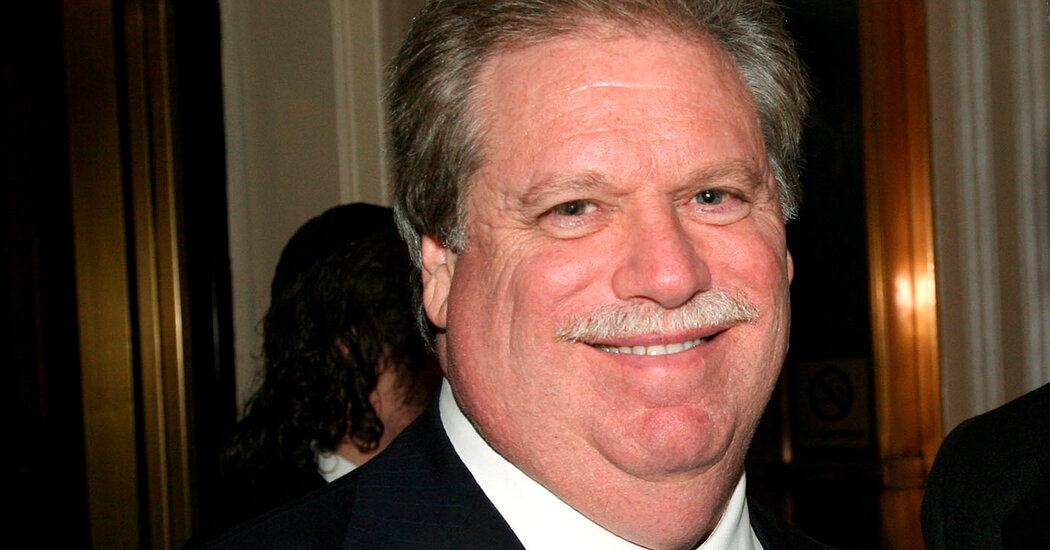Elliott Broidy, a California businessman who was once a top fund-raiser for Donald J. Trump, dropped two lawsuits on Monday against people he accused of helping to carry out a hack-and-leak operation that revealed his covert lobbying to shape the Trump administration’s foreign policy.
Mr. Broidy pleaded guilty in 2020 to conspiring to violate foreign lobbying laws on behalf of Chinese and Malaysian interests. Mr. Trump pardoned him in January 2021, just hours before leaving office.
The hack and dissemination of Mr. Broidy’s records in 2018, and the lawsuits that followed, came amid a bitter feud between Qatar and two of its regional rivals — the United Arab Emirates and Saudi Arabia — from whom Mr. Broidy was seeking lucrative defense contracts. From the beginning of the Trump administration, Mr. Broidy lobbied Mr. Trump and his aides to take a harder line against Qatar.
In the lawsuits, Mr. Broidy claimed that the Qatari government engineered the hack in an effort to neutralize his criticism of the country for financing groups linked to terrorism.
The New York Times published articles about Mr. Broidy’s activities based on material provided by an anonymous group critical of his advocacy of American foreign policies in the Middle East. Who is responsible for the hacking operation remains unclear.
One of the lawsuits was against Kevin Chalker, a former C.I.A. officer who owns a New York-based technology security firm. Mr. Broidy had alleged that Mr. Chalker and his firm, Global Risk Advisors, orchestrated the email hack on behalf of the Qataris.
When Mr. Broidy filed the lawsuit in 2019, the firm had a contract with the Qatari government that Mr. Chalker’s lawyers said focused on providing security for the 2022 World Cup, but Mr. Chalker has long denied he played any role in the email hack. In a statement on Tuesday, he said that the dismissal of the case “marks the end of nearly six years spent fighting to clear my name.”
“As I have maintained from the very outset and throughout the six years,” he said, “the accusations made about me were without merit.”
The other lawsuit, also filed in 2019, was against three lobbyists who had worked for Qatar: Nick Muzin, a Republican political operative and lobbyist; Joey Allaham, a former New York restaurant entrepreneur turned international fixer; and Gregory Howard, a former Democratic congressional aide who went on to work for public relations and lobbying firms.
The lawsuit accused the three of disseminating the hacked materials “to silence Mr. Broidy, punish and suppress his political expression, alienate him in U.S. foreign policy circles and reduce his influence on United States foreign policy — all in an effort to remove him as an obstacle to Qatar’s efforts to improve its public relations standing in the United States and abroad.”
All three denied playing any role in the hack or dissemination of the materials, as did Qatar.
Mr. Broidy last year withdrew his claims against Mr. Allaham, who admitted that he knew about the hack but asserted that he did not participate in it. He began cooperating with Mr. Broidy in his litigation.
Mr. Muzin did not respond to a request for comment.
Mr. Howard referred questions to his lawyer, who did not immediately respond to a request for comment.
Mr. Broidy’s lawyers did not make clear why they were dropping the lawsuits in their filings on Monday, and neither Mr. Broidy nor his lawyers responded to a message seeking comment.
Mr. Broidy had also sued Qatar and a former United Nations diplomat in connection with the hack, but separate federal judges ruled that the country and the diplomat had immunity from the claims.
The hacked materials showed how Mr. Broidy used his access to Mr. Trump and his administration to curry favor with foreign clients and prospective clients, including in Angola, the Republic of Congo, Malaysia, Romania, Saudi Arabia and the United Arab Emirates.
He sought to steer White House policy toward friendlier relations with the Saudis and the Emiratis — and to take a more hawkish position on their regional nemesis Qatar.
Mr. Broidy’s defense company, Circinus, won a $200 million contract from the Emirates and pursued an even larger payday from the Saudis.
In 2018, a lawyer representing Mr. Broidy wrote a letter to the Qatari ambassador in Washington saying that the legal team possessed “irrefutable forensic evidence tying Qatar to this unlawful attack on, and espionage directed against, a prominent U.S. citizen within the territory of the United States.”
If Qatar was not responsible, he wrote, “we expect your government to hold accountable the rogue actors in Qatar who have caused Mr. Broidy substantial damages.”
Seamus Hughes contributed reporting.


